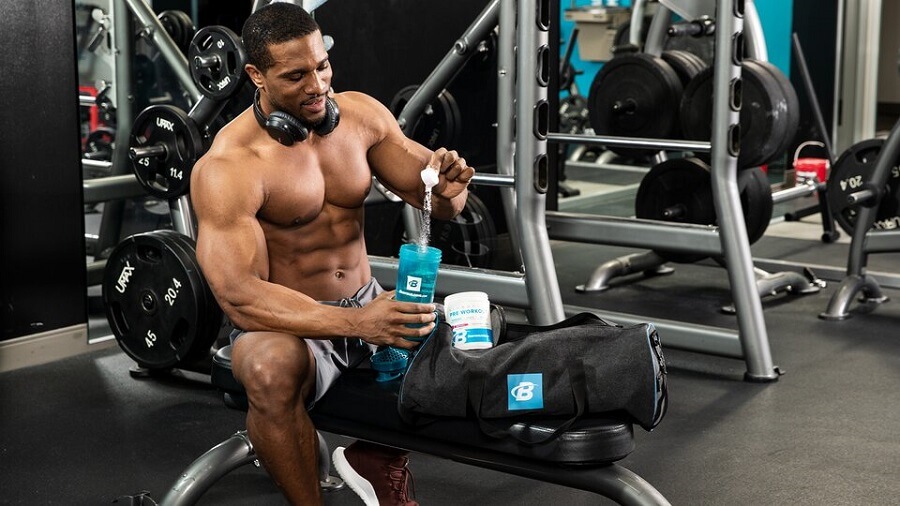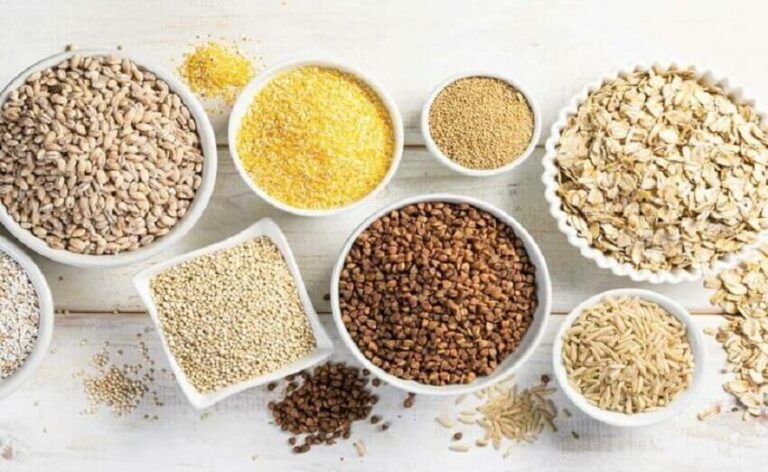How to achieve muscle growth?
Muscle growth, or muscle hypertrophy, is achieved through active training of muscle fibers and their subsequent repair. Supplements and food play a fundamental role in increasing muscle volume.
Muscle growth is not possible without a correct balance of carbohydrates, proteins and fats in the diet. Training plays a fundamental role in development, however, without the presence of the substances necessary for repair. The results can be seen minimized up to 50%. (1)
RELATED: Menu to gain muscle mass
The role of food in muscle growth
To train, the body needs an increase in the fluid reserves that surround the muscles: the sarcoplasm. Without the contribution of carbohydrate foods, this does not happen.
The correct intake of food allows you to train for a longer time and therefore is essential to achieving muscle growth.
A correct supply of proteins and healthy fats is essential to achieve the hormonal balance necessary for the development of muscles.
Eating insufficiently and the lack of essential amino acids are one of the main mistakes that a beginner makes in muscle growth processes.
The first step in eating to achieve muscle growth is a positive calorie balance.
Muscle growth requires at least an excess of at least 10-15% calories. A 25-30-year-old man who is approximately 180 cm tall and weighs 70-73 kg needs at least 2700-3000 kcal to increase lean muscle mass.
The carbohydrate sources should be primarily complex carbohydrates, just as high-quality saturated and monounsaturated fats should be weighted.
To achieve muscle growth, proteins of high biological value must be included. Studies suggest that you need to consume between 1.5-and 2.0 g of protein per kilogram of body weight. (1,2)
RELATED: Bulking Diet – What to Eat to Build Muscle Mass?
Muscle growth and hormones
The ability of hormones to stimulate muscle growth is the most important. Studies have shown that the effects of hormones are more important than training.
The average production of hormones related to muscle growth: testosterone, IFG-1, and growth hormone, among others, influences up to 40% of the processes of muscle development. (2)
Being exposed to stressful situations or lacking minerals such as magnesium and zinc can negatively affect muscle growth.
Workouts to achieve muscle hypertrophy
Strength training is the best for muscle growth. The ideal is to alternate between periods of low repetitions and heavy loads with reaching a maximum number of repetitions and lightweight. This is essential to achieve the development of both slow and fast fibers.
Including strength routines with a weight equivalent to 85% of the maximum weight, you can lift one of the best methods to stimulate the production of hormones necessary for muscle growth (3).
Performing exercises with considerable weight and few repetitions increase muscle strength and volume. At the same time, activities performed with medium weight and a high number of repetitions increase resistance.
Supplements to increase muscle mass
When choosing sports supplements to achieve muscle growth, all kinds of confusion are usually generated. Following the recommendations of friends or gym buddies is usually one of the most frequent mistakes in beginners. The result: a waste of money.
Buying sports supplements can help a person to improve muscle growth results. However, nothing can replace a correct balance of nutrients.
As the word sports supplements indicate, they should be viewed as a supplement, not as the basis of feeding. We recommend reading the best accessories to evacuate all doubts to increase muscle mass.
Some supplements may be better for bulking muscle growth and others for toning. Assessing a person’s body somatotype is an easy way to determine which is the best for a person.
A sports supplement for an ectomorph, the body type with a tendency to be slim, will not be the same as one for an endomorph, the body type with a tendency to gain weight.
RELATED: How to tone the body?
ABSTRACT
Muscle growth is achieved through the combination of workouts focused on increasing the strength and endurance of the muscles.
The diet should be based on high-quality carbohydrates and proteins. Fats play a fundamental role in producing hormones, so they should not be eliminated from the diet.







